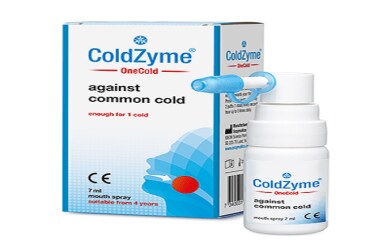Battling Coronavirus: Can Coronavirus be destroyed in the mouth itself, a point from where it infects the human body? The idea seems likely now. A Swedish life science company Enzymatica has claimed that an in vitro study has been done to test the ability of mouth spray ColdZyme (which is used for common cold). The preliminary results of the study revealed that the mouth spray can be used to deactivate SARS-CoV-2, a virus that has been wreaking havoc across the globe for the last six months. Enzymatica in a press note has mentioned that ColdZyme can lead to deactivation of the Coronavirus by 98.3 per cent.
How does ColdZyme work?
The company said the mouth spray can form a barrier in the oral cavity which is usually against the common cold. The recent study implied that this could also offer a protective barrier against viruses that are harmful in nature like the novel Coronavirus. It is to note that the barrier solution of the device has been made from glycerol and Atlantic cod trypsin.
Further, it noted that the deactivation of SARS-CoV-2 took place in 20 mins and impacted 98.3 per cent (1.76 log10) of the viral content. The company said that they conducted tests based on a validated and standardised method.
According to Claus Egstrand, Enzymatica’s Chief Operating Officer, it is quite interesting that ColdZyme is able to deactivate the Coronavirus by providing a protective barrier. However, it is still unclear whether the in vitro results can be translated into clinical efficacy.
Earlier too, similar studies have been done that showed ColdZyme;s effectiveness against another coronavirus which is HCoV-229E. The company believes that this mouth spray can be effective against many strains or varieties of Coronaviruses.
Meanwhile, 14,043,176 cases have been reported positive for novel Coronavirus across countries, according to the World Health Organization. Among these, the death toll has increased to 597,583. More than 200 countries are still battling the pandemic with various kinds of treatments and vaccine development.
